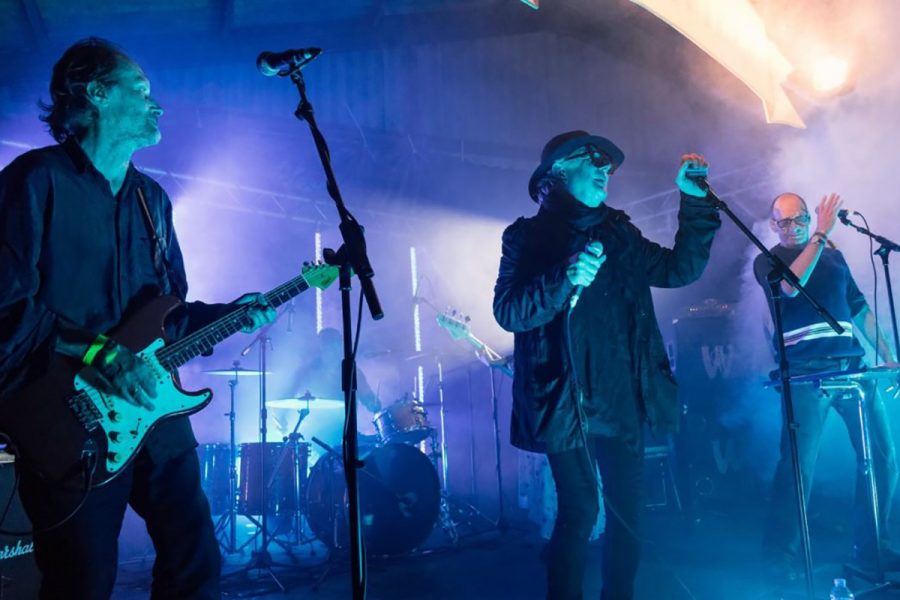Viva La Visa (VLV) is, as the name suggests, a visa specialist company, which serves the entertainment industry, in particular live music, theatre, fashion, film production and exhibition worlds, among many others. “We have been operating for 12 years with 10 members of staff tasked with handling visas and country relation work,” VLV Founder, Andy Corrigan said, speaking from his Stowmarket HQ. Having toured the world as a production and tour manager with The Human League, ABC, Kim Wilde, New Order, Gang of Four, Steel Pulse, Aswad, and PiL, among others, as well as a singer with The Mekons and dealing with advances and visa applications, Corrigan had found a gap in the market for VLV.
“A large percentage of our work prior to the COVID-19 pandemic was facilitating the flights for performing artists, primarily from the UK to the States and elsewhere in the world,” he recalled. “Before March 2020, we were working on several US tours for bands and Broadway shows, as well as many world tours which were sadly postponed,” he continued. “We therefore saw hundreds of US visa applications stalled, most of which were subsequently picked up again after restrictions eased.”
Given the impact of the pandemic, VLV had to put members of staff on furlough, meaning it kept staff employed right the way through lockdown, as well as being supported by the UK government’s Culture Recovery Fund (CRF). “Despite there being no live events, certain clients were still travelling, albeit on a smaller scale. The fashion and film sectors picked up for us despite the slowdown of live music and theatre clientele,” he explained. “Now, because of Brexit and the subsequent pandemic, we have a much broader array of clients from a range of sectors. Despite a tough year, the business has grown busier each month, post-lockdown, and we hope the live events sector will return to full strength in 2022.”
As for Brexit, despite the EU being one entity, every country has its own regulations regarding what is required to go and work in that country. It is the job of firms like VLV to trawl through 27 sets of complex immigration laws to find the regulations that apply to touring musicians and while many EU countries have exemptions for touring artists, they don’t cover every situation. “It gets complicated when clients are travelling for a unique set of circumstances, such as exhibitions or a theatre tour, which requires a longer stay than the current 90 to 180 days arbitrary restrictions of how much time you can stay in the EU without a long-stay visa,” Corrigan said, acknowledging that while each case is different, “it is our job to oversee these shifting goalposts.”
Apart from the headache of carnet for kit, Corrigan said, it can be straightforward in most European member states. Even Spain, which typically requires a visa for any work activity, has recently waived visas for touring artists. “We have dedicated staff doing research, speaking to various consulates to distil what is required because the problem is often that government’s don’t understand what the requirements are and the laws are written in such a language that it is not necessarily easy to interpret and by the consulates’ own admission, most of them do not understand themselves,” Corrigan explained. “It is a question of digging around and coming to conclusions about what is required.”
While VLV does not profess to be experts in every legislation law, its drive to consult with people in each country means the firm is gradually developing a level of understanding as to what is required in each territory. “The best way to get around the impositions created by Brexit is to amass our knowledge and experience of helping people get to where they need to go,” he said.
However, the caveat is the understanding that these things take time and often in the world of music touring, there isn’t the lead time required. “It’s a factor that people are having to put into their touring schedules and budgets, which didn’t exist prior to Brexit or the pandemic,” Corrigan responded.
One of the things current touring acts are doing to circumvent the shifting goalposts is scaling back the level of their production and/or number of travelling crew in Europe. “We have seen bands tour Europe solo or with few engineers if any to save time and resources,” Corrigan reported. “My advice to those advancing for global or transatlantic tours in the coming months is to allow yourself more time and budget it. We’ve seen touring camps put visas at the top of their list of priorities going forward, when they used to be right at the bottom.”
While the past 18 months have been difficult with yet more hoops to jump through, following the recent news that the US has lifted travel restrictions from the UK and Europe, Corrigan believes USCIS, the US government agency that deals with work permissions, are going to be “overloaded with requests”, which will slow down the travel process. “There is a possibility of increased fees given the lack of financial support from the US government,” he remarked.
Despite this, VLV is already advancing tours for 2022 and beyond. “We recently sat in at the planning stages of a three-year tour. A big tour can involve facilitating up to 100 or more members of crew that a production has to travel with,” he commented.
In certain circumstances, challenges involve expiring passports or criminal convictions, which means members of the crew cannot travel to places such as Japan. “My lasting suggestion for touring camps is to put visas at the top of your Christmas shopping list this year.”
This article originally appeared in issue #266 of TPi, which you can read here.


